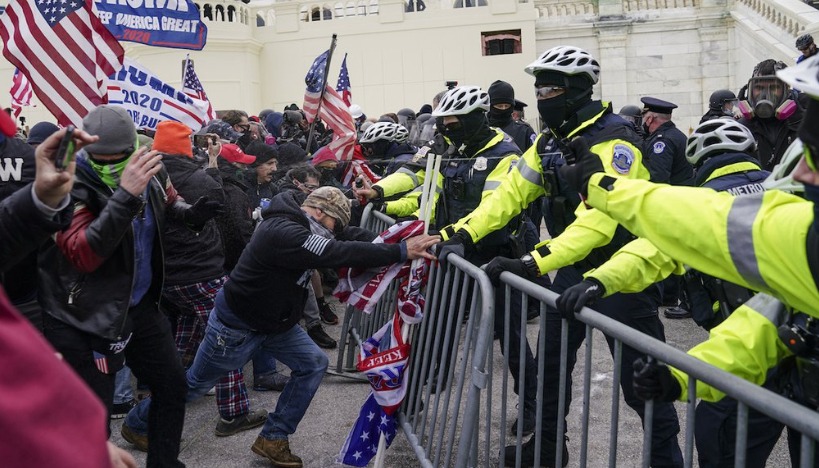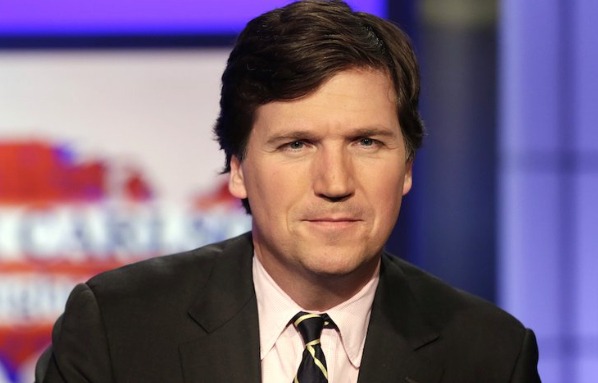Since this diary was posted, Judge Tanya Chutkan has unsealed Special Counsel Jack Smith’s brief. The evidence is as serious as you would expect — even more than many people might imagine.
Will Voters See the Evidence?
Will voters see the evidence of Trump’s 2020 election interference before November 5th? Or will the insurrection enabler succeed in keeping it hidden? It’s up to DC District Judge Tanya Chutkan to decide. After months of delay and uncertainty caused by the Supreme Court’s slow decision to grant Trump immunity for “official acts,” she has Trump’s DC case back. And she will soon announce, maybe today, what’s next.
Two Competing Suggestions
Judge Chutkan has two competing suggestions on her desk.
- Jack Smith’s Brief: Special Counsel Jack Smith has a 180-page brief with attachments filed under seal. It details the charges against Trump, a summary of his actions, and evidence — all tailored to be admissible, even with the Supreme Court’s mandate of presidential immunity. Smith wants to unseal a redacted version to protect witnesses and sensitive information.
- Trump’s Lawyers’ Brief: Trump’s lawyers submitted a 7-page brief arguing that Smith is ignoring the law, precedent, procedure, and decorum. They want Chutkan to wait to release the evidence of Trump’s criminality indefinitely.
Trump’s Legal Team’s Strategy
Trump’s legal team often uses confusion as a strategy. Their latest effort is short and irrelevant. In a pre-2017 world, it would have been dismissed easily. But those rational times are cherished memories.
Trump’s Argument
Trump’s team starts by complaining that the prosecution has taken over the defense’s right to set the timetable.
Introduction: President Donald J. Trump respectfully submits this opposition to the motion by the Special Counsel’s Office proposing redactions to their so-called “Motion for Immunity Determinations.”
The problem is that Trump’s Supreme Court left it up to Judge Chutkan to decide what charges and evidence would still be allowed under their immunity ruling. Chutkan asked both sides for briefs arguing their positions. Smith did not submit his filing randomly.
Claims of Election Interference
Trump’s team claims Smith’s attempts to prove election interference is, in itself, election interference.
They argue that Smith’s efforts are politically motivated and inappropriate, especially during the final weeks of the 2024 Presidential election while early voting has begun.
Let’s note that the case proceeding now — and not months ago — has nothing to do with Smith. If it were up to him, Trump would already be in jail. It is Trump’s use of his legal rights (and a beholden Supreme Court) that set the calendar.
Accusations of Media Influence
Trump’s team accuses Smith of using extra-judicial measures to influence the public.
They ignore that the brief is filed with the Court — not “the media.” Jack Smith almost never talks with news people. His team is very private. This is almost unheard of in DC.
Concerns About Witness Safety
Trump’s lawyers argue that releasing even redacted information about witnesses would put those witnesses at risk.
Specifically, they say:
“President Trump has no objection to redacting the names of individuals who are not specifically identified in the Superseding Indictment. However, in numerous instances, the redactions and pseudonyms proposed by the Special Counsel’s Office fail to meaningfully mitigate the privacy and safety issues the Office references in the Motion and has previously discussed at length.”
Inconsistent Treatment of Evidence
Trump’s team goes on to say that Smith’s treatment of evidence is inconsistent.
The Special Counsel’s Office takes an inconsistent position with respect to materials previously designated as “Sensitive” pursuant to the Protective Order. These materials include grand jury testimony, materials obtained through sealed search warrants, transcripts and reports of witness interviews, and materials obtained from other governmental entities.
Florida vs. DC Case
Trump’s lawyers refer to actions Smith took in the Florida documents case, which has nothing to do with the DC case. In Florida, Trump is charged as a private citizen for keeping national secrets despite requests for their return and lying about having them. In DC, he is charged as an ex-president with trying to interfere with an election while president.
Accusations of Political Motivation
Trump’s lawyers repeatedly accuse Smith of playing politics.
They write, “Now that public disclosure serves their politically motivated mission, the Special Counsel’s Office takes a different view.”
A: That is not a legal argument. Motive supports evidence. If there is no evidence, then motive is irrelevant.
B: Trump’s lawyers submit no actual evidence that Smith has a political agenda.
Conclusion
Reading Trump’s brief reveals a legal team that knows it has to say something but has no legal argument to support their position. The brief could have been dictated by Trump with his lawyers tidying up the language and throwing in some legal references for window dressing.
What will Chutkan decide to release — if anything? And when? Who knows? But hopefully, she errs on the side of the voter and exposes evidence of Trump’s anti-democratic actions in time for the voters to consider in their vote.
FAQs About Trump’s Last-Ditch Attempt to Suppress 1.6 Evidence
Here are the top 10 FAQs related to Trump’s recent legal maneuver:
- Q: What is the 1.6 evidence in the context of Trump’s legal case?
A: The 1.6 evidence refers to a significant amount of data and documents that could potentially incriminate former President Donald Trump in various legal proceedings, including the ongoing investigations into his handling of classified documents and potential obstruction of justice. - Q: Why is Trump trying to suppress the 1.6 evidence?
A: Trump is attempting to delay the release of the 1.6 evidence until after the election, likely to minimize its impact on his political prospects and potentially influence the outcome of the election. - Q: What is the nature of the legal brief filed by Trump’s team?
A: The legal brief filed by Trump’s team is a 7-page document that argues for the delay in releasing the 1.6 evidence, citing unspecified national security concerns and procedural issues. - Q: Who is involved in the legal proceedings related to the 1.6 evidence?
A: The legal proceedings involve multiple parties, including federal investigators, the Department of Justice, and various court officials who are overseeing the case. - Q: What are the potential consequences if Trump succeeds in delaying the release of the 1.6 evidence?
A: If Trump succeeds in delaying the release of the 1.6 evidence, it could potentially shield him from further scrutiny and legal repercussions until after the election, potentially altering the political landscape. - Q: How has the public reacted to Trump’s latest legal maneuver?
A: The public reaction has been largely critical, with many viewing Trump’s attempt as an attempt to evade accountability and undermine the rule of law. - Q: What are some of the key arguments made by Trump’s legal team in their brief?
A: The key arguments include claims of national security risks associated with releasing sensitive information and procedural delays that allegedly necessitate postponing the release of the 1.6 evidence. - Q: Can Trump’s attempt to delay the release of evidence be seen as an obstruction of justice?
A: Some legal experts argue that Trump’s actions could be interpreted as an obstruction of justice, as he is attempting to interfere with ongoing investigations by delaying critical evidence. - Q: How might this case impact the broader political landscape leading up to the election?
A: The case could significantly influence public opinion and voter sentiment, potentially affecting the outcome of elections as voters become more aware of the legal issues surrounding Trump. - Q: What are the next steps in this legal case, and when can we expect a decision?
A: The next steps involve court proceedings where judges will review Trump’s arguments and decide whether to grant a delay in releasing the 1.6 evidence. A decision is expected soon but could be appealed further.








